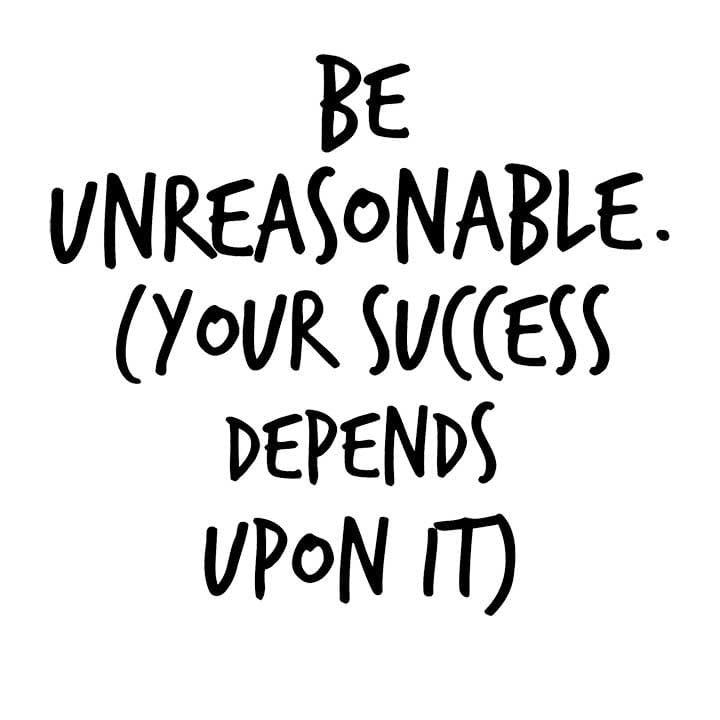Nurses, on the whole, are a darn nice group of people. After all, nurses have a reputation for being caring, self-sacrificing, nurturing, hardworking, and honest. So why don’t nurses feel more respected?I’m going to step out on a limb here and say that it’s because nice people are often considered invisible and powerless. Unfortunately, the words autonomous, intelligent, educated, and strong don’t come to mind when people describe nurses. And you and I know that nurses are all of those things, and more.
Paying the price
Admit it, you’re a people pleaser. You put your patient, employer, family, and everyone else first. Yes, doing something for others is its own reward, and it feels good. But no matter how nice you are, when your professional and personal lives are dictated by the whims of others, frustration and anger inevitably set in. You’ve given in…again.
When you’re afraid of displeasing others, you pay a price. You stuff your feelings and opinions and settle for the status quo. If the other guy always comes first, you can’t speak your mind and honor your integrity. Instead, you accept what is unacceptable and bear the burden because that’s what nurses do.
Of course, being unreasonable means paying a price, too. Making waves and disrupting the status quo can be uncomfortable. I had my first taste of being unreasonable before I became a nurse. This was when “equal pay for equal work” wasn’t the norm, and I was paid less than a male coworker for the same job because he was the “head of a household.” That was unacceptable to me. So I filed a discrimination suit and won, but it wasn’t pleasant.
Today, we stand on the shoulders of unreasonable nurses who came before us—for example, those who pioneered the way for nurses to practice as executives and those who swam upstream for the right to practice independently as nurse practitioners.
Life in the box
Institutions use a group-think mentality to keep nurses in the box. You can see it at work when a nurse or a group of nurses becomes too outspoken or aggressive. Sometimes, these nurses are accused of being “unprofessional,” which is a powerful trigger word because we’ve struggled so long for professional recognition. And that is exactly why it’s used. The word is intended to make us squirm and crawl back in the box. And then we have the subtle but powerful cultural, family, and professional messages to keep us in the box. Consider the meanings of these often-used expressions:
• “Who do you think you are?” These words are meant to make you think and behave like everyone else. But guess what? You’re not like everyone else.
• “You’ve got a mind of your own!” Good grief, whose mind should you have?
• “Those young nurses don’t want to give up their personal life for nursing.” Have you considered they might be right? Maybe you’ve given up too much of yourself.
Don’t for a minute think that some healthcare institutions aren’t taking full advantage of how nice you and your nursing colleagues are. They depend on the collective pressure of this group-think to keep nurses in line. So you are rewarded for being nice and staying inside the box. Remember that lovely mug inscribed “Nurses Care” you received for Nurses Week?
Why be nice?
Can you really be unreasonable and still be a good person and good nurse? Absolutely! Being unreasonable doesn’t mean being disrespectful or obnoxious. It means you have strong boundaries, appreciate and understand your value, are an advocate for your patients and profession, and honor who you are and what you do.
Yes, being nice means people think you’re wonderful. At first glance, that may be appealing. But the truth is that people think you’re wonderful because you’re tending to their needs and agenda. Why wouldn’t they think you’re swell?
Try this exercise: Make a list of what you have gained and a list of what you have lost by being nice. Now, imagine that you’re unreasonable. How would that impact who you are as a nurse? How would that impact the decisions you make? How would it impact your career? Write it down.
It’s reasonable to be unreasonable
You’ve always been told that the healthcare institution is doing everything it can to fix long-standing problems. But what is the incentive for administrators (and I’m not talking about nursing administrators) to find solutions to problems that don’t directly affect them? Would solutions appear more quickly if they had to report to short-staffed units and roll up their sleeves? Of course, they would. But the reality is that when someone calls in sick and you’re told you can’t leave at the end of your shift, the administrators are calling it a day and going home.
Being nice hasn’t worked. You’ve always put the patient first, as you and your colleagues closed ranks and made it through one shift at a time. But the nursing shortage, the overcrowded emergency departments, and the extra shifts aren’t going away.
You go to the mat professionally and personally for patients and your loved ones, but not for yourself. Don’t you deserve better? Consider how different the nursing profession and your life would be if you were a bit more unreasonable.
Selected references
Borgatti J. Frazzled, Fried…Finished? A Guide to Help Nurses Find Balance. Borgatti Communications: 2004. Available at: www.joanborgatti.com and www.booklocker.com.
Henein M. Be Okay with not being nice. Available at: www.pacificlifecoach.com/doc/news/california%20psychics%20com.doc. Accessed July 5, 2007.
Rackner V. Being nice can be hazardous to your health. Available at: www.trans4mind.com/counterpoint/rackner.shtml. Accessed July 5, 2007.
Robinson D. Too Nice for Your Own Good: How to Stop Making 9 Self-Sabotaging Mistakes. New York, NY: Warner Books; 1997.
Joan C. Borgatti, MEd, RN, is the owner of Borgatti Communications in Wellesley, Mass., which provides writing, editing, and coaching services. Her website is www.joanborgatti.com.


















